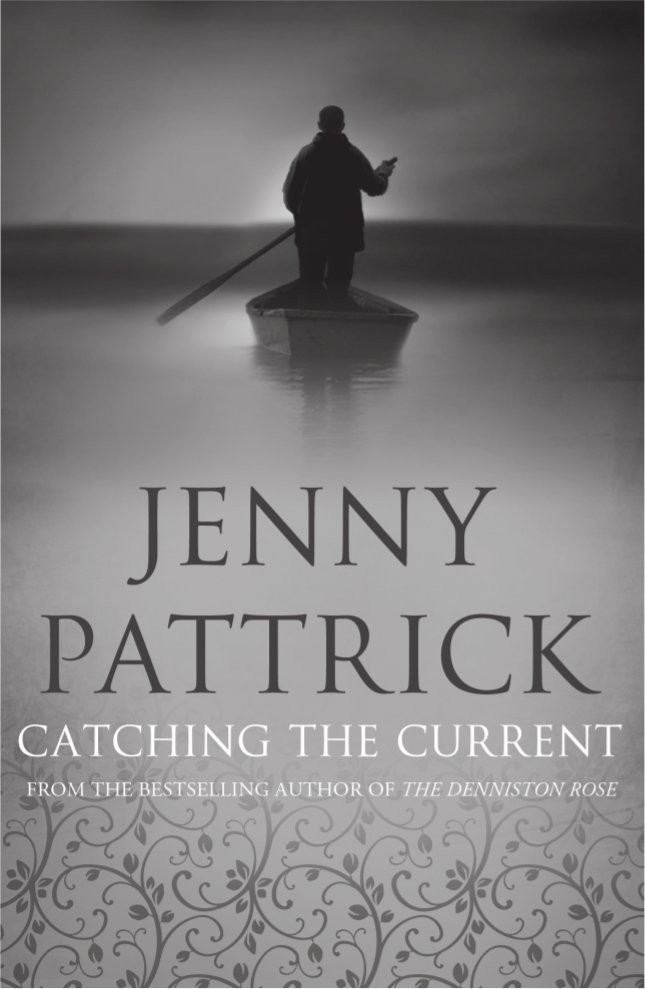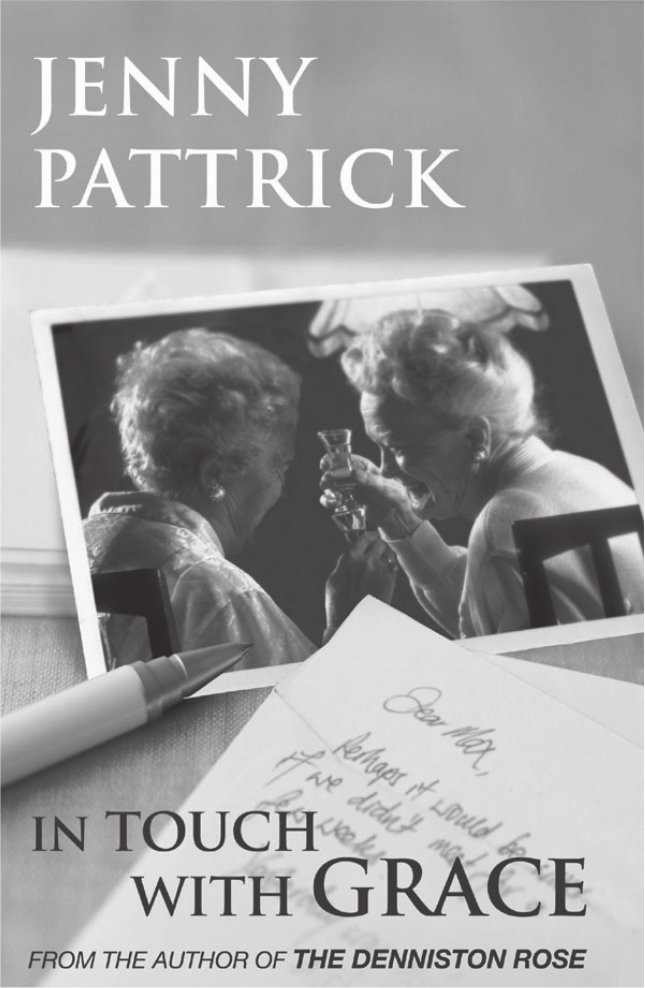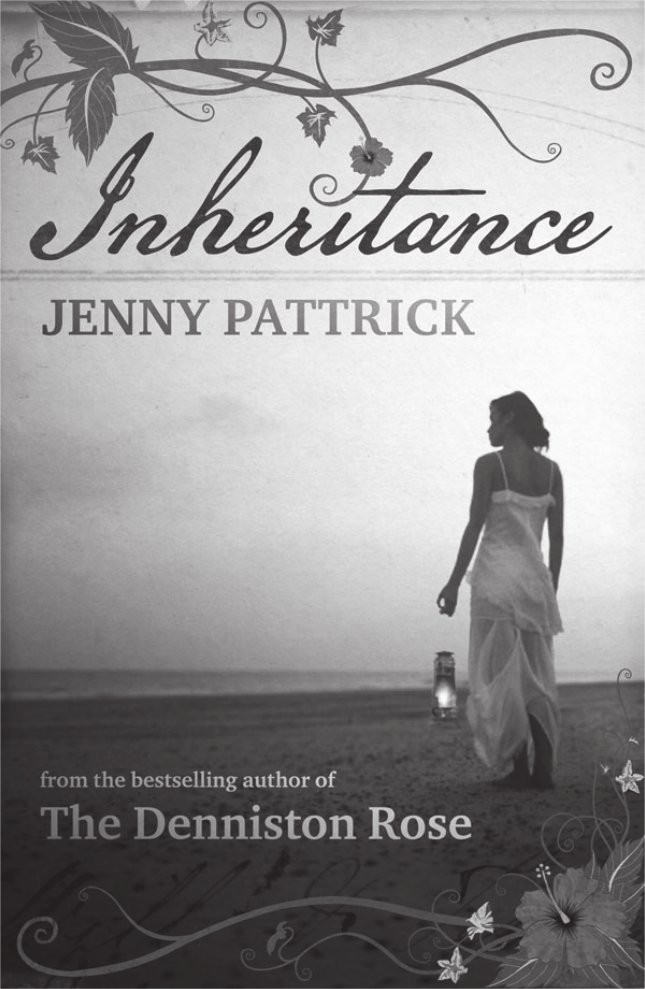The Denniston Rose (28 page)
Read The Denniston Rose Online
Authors: Jenny Pattrick
WHEN JANET SCOBIE set out to look for her, Rose had been gone two months. Two weeks later Janet returned empty handed, but by then she had spread the story to everyone on the West Coast, give or take the odd bushed hunter or prospector. Well-bred charity ladies and tough old miners all knew her name and were mobilised to search for her. A heart-rending little song about Rose was often sung in the parlours of Westport, and a more ribald one around campfires. ‘The Denniston Rose’ she was, in the song, not Rose of Tralee any more:
Oh, there’s plenty of English Roses
And there’s Mary, the Rose of Tralee
But the Denniston Rose was a Coaster —
Wild and thorny and free.
She arrived on the Hill in a blizzard
No more than a tiny nipper
As tough as a boot our Rosie was
And as pretty as a slipper.
She was trickier than Donnelly;
Light-fingered too, they say
She’d winkle a shillun’ out of your purse
While she bade you a sweet ‘Good day’.
She killed a man with her own bare hands,
She started a miners’ riot,
Then ran off to Hokitika
When she fancied a change of diet.
A law unto herself was Rose,
She came and went at will,
From north to south she travelled the Coast
But her heart was on the Hill.
Oh there’s plenty of English Roses
And there’s Mary, the Rose of Tralee
But the Denniston Rose was one of us
It’s the Denniston Rose for me.
Railwaymen were on the lookout, and mine managers, storekeepers and farmers. The story, expanding with each telling, of the brave little girl who fought off a brutal attack, bringing down her giant assailant, appealed to rough Coaster hearts. Perhaps the story became so embroidered that no one recognised the real Rose. After the Hokitika report there was not one sighting. The
Denniston Rose became a myth.
Yet somehow the real Rose of Tralee, that tough little survivor, scarcely seven years old, found her way up through Greymouth and Westport, to Waimangaroa, through the gorge to Conn’s Creek, up on the coal train to the railhead, without one single adult noticing.
Later it turned out several children saw and helped her.
‘She sat with us in the playground at lunchtime.’
‘Me and my brother let her sleep in Dad’s barn.’
‘She said it was a secret.’
‘She said she had treasure.’
‘She said she was Rose of Tralee … but it was the Denniston Rose all right.’
Rose trusted people her own age.
And the mother? Rose said she lost her mother, which officials took to mean the mother abandoned her. More likely, said Denniston people, Rose abandoned the mother. Said it with pride. No one on the Hill was going to question
that
sort of behaviour. Who at Denniston hadn’t abandoned family at some stage or another? Rose, smarter than most, simply did it earlier. Rose was vintage Denniston material, they reckoned: born to live on the plateau and return to her mother town like a homing pigeon. Look at the way that little tiger came back!
THE sky bristled with stars that night, over a sharp new moon. Night shift were at it hammer and tongs, running wagons to and fro, brake-man and hook-man sending them down every four minutes, yard lit with the big new electric lamps.
Yet she still managed to slip in unnoticed! Con the Brake might have seen her if he’d been there. Con might have noticed a small curled and darker shadow in the bottom of an ascending wagon; might have sensed a pair of eyes peering over the rim as the hook-man
uncoupled her and ran her down over the rails towards the Bins. Rose herself would surely have jumped out with a smile and a shout if Con had been there.
Or would she? Rose was always a mystery.
At any rate, no one noticed her arrival. Con was who knows where, still searching for Rose (or so Bella said). Mary Scobie, peering in poor lamplight, was sealing up the next batch of letters, some asking after Rose but more angled towards political matters. Totty and Tom Hanratty laughed with their guests in the parlour as a travelling salesman gave a humorous recitation. Michael, sent to bed for fidgeting, teased his sister by pretending to be the ghost of Billy Genesis. Up at Burnett’s Face, Josiah and his boys, at band practice, blared out ‘Lead Kindly Light’ in Uncle Arnold’s front room, Brennan taking cornet solo, while Eddie Carmichael, alone in his high office, added up long lines of rather pleasing figures, which Rose would have understood and enjoyed.
DOWN at the Camp, Bella Rasmussen is washing face and hands in preparation for an early, lonely bed. She recognises the cold lump in her stomach, the sour taste in her mouth as despair. Con has been gone too long. No word, no message. Her life has shrunk, closing in around her shoulders like a shroud. She looks out the little back window but the eyes are dull, disinterested. Then she frowns. Something is moving in the back yard. Too large for dog and too small for man. The thing is scrabbling behind Conrad the Sixth’s tomb. She seizes the broom, flings open the door and shouts.
‘Shoo! Get away! Off!’
The scrabbling stops. The dark shape slides from view. Something about the quick movement stops Bella in her tracks. Her heart thumps hugely, blocking breath and speech. Gently, not daring to trust eyes or instinct, she lowers the broom, prays for
another sign. Someone is there. No ghost, no animal, but a small person who is waiting too. Who also waits for a sign.
Above them, the Incline rattles on through the night.
‘Rose?’ Bella whispers at last.
Rose stands. In her hands is a scratched wooden box. ‘I can pay for my board,’ she says in her tight clear voice, older, much older than any child’s should be.
Readers may be interested in the real dates and events surrounding the period of this novel:
1879
October 24th declared a public holiday in Westport for the opening of the Denniston Incline.
1881
First women and children arrive on the Hill. Some will not go down again for twenty years.
The drive through Banbury Mine to Burnett’s face is completed. Some 50,531 tons of coal produced.
First school opens, run by Miss Mary Elliot, mine manager’s daughter.
Thirty colliers, recruited from England, arrive, via the Incline, at Denniston.
1883
New school built.
1884
The Track — a bridle path up to the plateau — opens.
John Lomas arrives on the Hill.
1884
September: Denniston Miners’ Protection Society launched. John Lomas president.
1884
December: First miners’ strike in New Zealand begins, led by John Lomas.
1885
March: Company sends eviction notices to thirty-one collier families. Many go to work at Koranui mine and support those at Denniston.
1885
June: Company capitulates. Returning miners drive scab labour off the Hill.
John Lomas was the real leader of the first miners’ strike in New Zealand, at Denniston. Like the imaginary Josiah Scobie, he was a Methodist lay preacher, a collier and a unionist from England. He and his party of recruited English colliers were temporarily stranded in Nelson because the Westport Coal Company feared an outbreak of unionism. However, apart from these similarities, all personal and family details of Josiah Scobie are fictional.

Eighteen years have passed since Rose first arrived in Denniston. She has grown into a young woman, intelligent and talented, with an outrageous zest for life . . . and love.

This is the tale of Con the Brake. A talented and impetuous Faroeman, he finds he cannot escape his past.

The lives of the people scattered along the edges of the Whanganui River come together in this vivid and moving story of a stunningly unique place.

A tender and amusing novel set in the nineties, with the Springbok Tour still a recent memory.

Elena glimpses her friend Jeanie in a New Zealand art gallery twenty-three years since she disappeared in Samoa. What are the secrets she is hiding?

For the little French girl, Lily Alouette, performing became a way of life. A life that those who love her must be prepared to share.